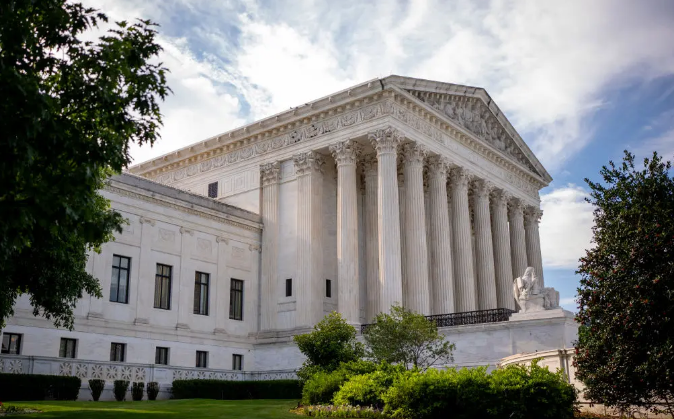The U.S. Supreme Court on Thursday unanimously ruled in favor of an Ohio woman who claimed she was denied a promotion and later demoted because she is straight, marking a significant shift in how discrimination claims under federal civil rights law may be evaluated for majority-group individuals.
In a decision that could pave the way for more so-called “reverse discrimination” lawsuits, the justices clarified that Title VII of the Civil Rights Act of 1964 protects all individuals equally, regardless of whether they belong to a minority or majority group. The ruling eliminates a previous legal hurdle that required majority-group plaintiffs—such as white or straight individuals—to meet an additional burden to prove discrimination.
“Title VII draws no distinctions between majority-group plaintiffs and minority-group plaintiffs,” wrote Justice Ketanji Brown Jackson in the opinion for the Court. “Congress left no room for courts to impose special requirements on majority-group plaintiffs alone.”
The case centered on Marlean Ames, a longtime employee of the Ohio Department of Youth Services. In 2019, Ames applied for a promotion but was passed over in favor of a colleague with less seniority who identified as a lesbian. Ames was later demoted, and her previous position was filled by a gay male colleague. Ames alleged in her lawsuit that both decisions were driven by bias against her sexual orientation as a straight woman.
Her supervisors defended their decisions, arguing that Ames lacked the vision and leadership required for the role and that her demotion stemmed from concerns over her management abilities.
Lower courts dismissed her case, citing a longstanding requirement that majority-group plaintiffs must demonstrate “background circumstances” suggesting their employer is unusual in discriminating against the majority. But the Supreme Court rejected that standard as inconsistent with the text and intent of Title VII.
The unanimous ruling underscores a broader interpretation of civil rights law, affirming that protection against workplace discrimination applies uniformly to all individuals, regardless of majority or minority status.
Legal analysts say the decision could have wide-ranging implications for employment discrimination claims, potentially opening the door to more lawsuits from individuals alleging reverse discrimination on the basis of race, sex, or sexual orientation.
The case now returns to the lower courts, where Ames’ claims will proceed under the clarified standard.









































